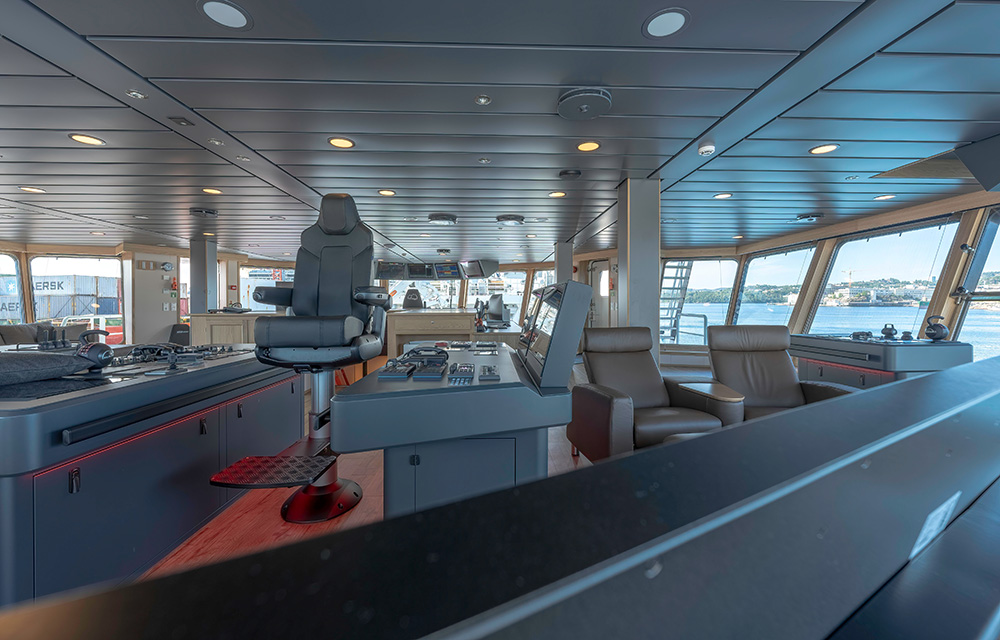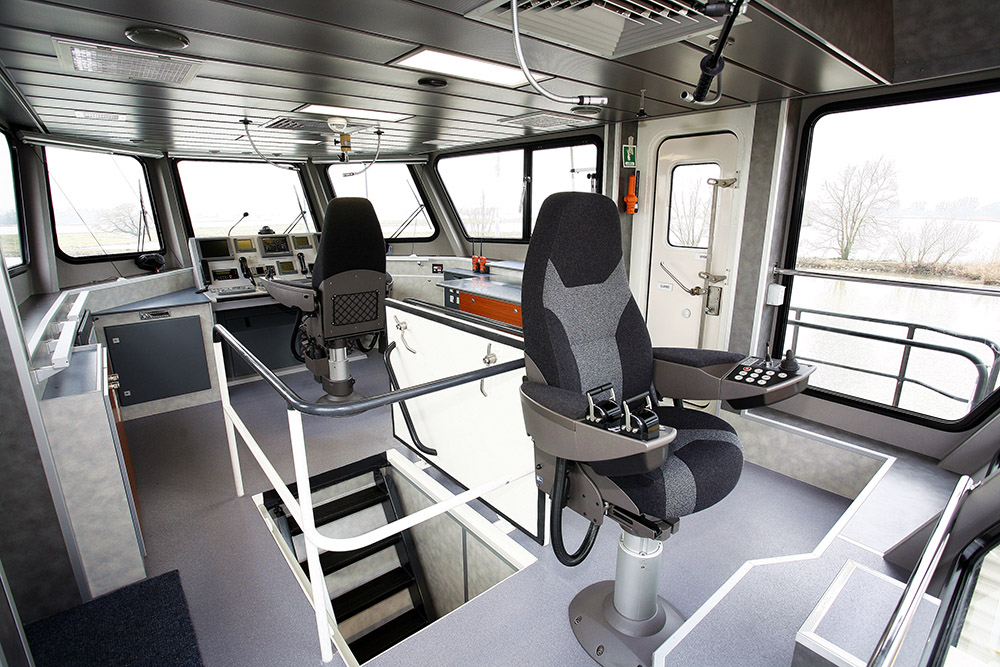Headquartered in New Bedford, Mass., Imtra provides helm seating, bow and stern thrusters, bulkhead doors and hatches, wiper solutions, lighting, and more. For over 70 years, Imtra has been supplying the commercial fishing industry with reliable marine equipment and systems all over the world.
Customer feedback helps the company to stay ahead of competitors, anticipate changing market demands, create new business opportunities, and continuously improve existing products and service offerings. It’s something that Imtra’s Director of Commercial Sales, Eric MacDonald, understands and is committed to since user feedback has impacted decisions around which equipment the company has made available for this segment. This feedback comes from in from everywhere, which has helped create opportunities for everyone.
“Many of our partners are from Norway, Sweden, and the Netherlands”, says MacDonald. “Those are countries with a deep history in the maritime industry, they design and manufacture extremely high-quality products, and that's exactly what we go out and look for”.
Because Imtra has a huge product offering, deciding what is the most appropriate product to stock and promote is an important decision. Those decisions are ultimately part of larger conversations, as these details impact the key questions that customers should be asking when it comes to the reliability and capability of everything from helm chairs to thrusters to marine doors and hatches.
“We need to understand how customers are using our products and what they expect of them,” says MacDonald. He continues by giving some examples of popular products that Imtra provides to commercial fishing companies, such as helm chairs: “Captain’s will often describe helm chairs in hours, referring to the amount of time they can comfortably sit in the chair at the helm. A proper ergonomic chair will provide the right amount of comfort and support while reducing stress and pressure on the body for extended hours at the helm. I’ve been told some of our helm chairs are 20+ hour chairs while others are less. That’s really important feedback in determining which models to stock and recommend based on the operating profile of the vessel.”
The same goes for doors on fishing vessels. "Many customers are looking for alternative solutions to steel doors, as heavy steel doors swinging around in rough seas can be extremely dangerous to crew moving throughout the vessel." In addition to steel and aluminum doors, Imtra also offers fiberglass weathertight and spraytight doors. The lightweight GRP (Glass Reinforced Plastic) offers a lighter and safer alternative to steel and aluminum. These are manufactured by Libra, a Norwegian company that provides all types of commercial vessels with a complete range of IMO-compliant, hinged, external and internal bulkhead doors, and hatches.
Another Libra product that is proving useful based on customer feedback is their weathertight Dutch door design. Fishermen found opening the top half of the door to communicate with the crew on deck and let fresh air into the wheelhouse quite useful, while maintaining the ability to seal off the outside world and keep the wheelhouse dry in rougher seas or rainy conditions.
“We often hear from fishermen during trade shows and events that the Dutch door design is a great solution for them and something they’d like to have on their vessels,” says MacDonald.
Providing high-quality customer service
Apart from providing high-quality and proven products that customers want, customer service and support are equally important. “Customers want high-quality products and systems that hold up to the environment they operate in, and we’re there to offer them the best equipment there is. But in addition to that, they also want to know they can depend on you and that you’re going to be there for them when a need arises, whether that’s six months from now or ten years down the road. We’ve been in business for over 70 years, we’re well established in the industry, and we’re here for the long run.”
Imtra has a dedicated customer service team, an in-house service shop, product managers dedicated to each brand, an engineering team as well as an outside sales team of twelve people stationed strategically throughout North America. Those local salesmen will go down to your vessel, take measurements, bring samples, make recommendations, and help with troubleshooting any challenges that arise.
When it comes to selecting products and equipment for fishing vessels, customers should be asking questions regarding capability, reliability, and availability. For example, questions regarding inventory strategy, says MacDonald: "Customers want the best but they often want it right away and aren't willing to wait for long lead times, which is why we focus heavily on maintaining inventory levels of the products our customers need the most urgently."
The same goes for questions about service and repairs throughout the lifespan of the product and vessel. Questions such as “Will I be able to get parts if I need them? Is there access to technical documents and drawings? Are they field-serviceable?” are important for builders, designers, and operators to ask before selecting a product. “And then again, where are the products manufactured? How long has the product been in the market? Who else is using these products and what is their experience?” adds MacDonald.
In the end, customers expect their equipment to last and be purpose-built: commercial fishing is a demanding and dangerous job, so having reliable and high-quality equipment aboard their vessel is critical, explains MacDonald: “They’ve educated themselves on our products as well as our competitors and they expect our team to be experts in our products to help them make that final purchasing decision. It’s our mission to help deliver the best equipment, combined with the best customer service and support in the market.”








